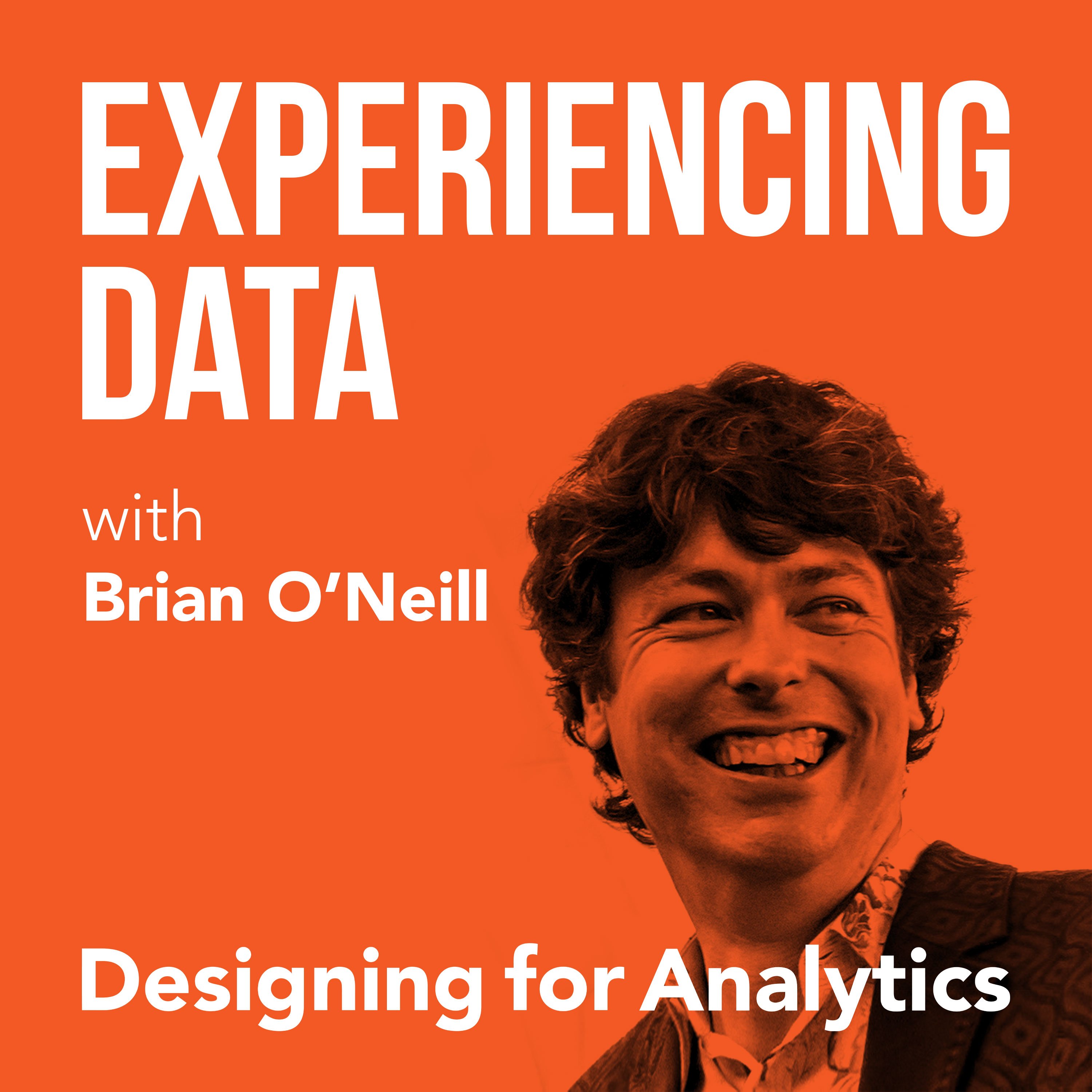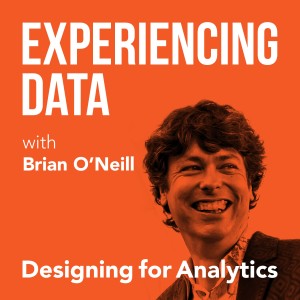

141.5K
Downloads
173
Episodes
Is the value of your enterprise analytics SAAS or AI product not obvious through it’s UI/UX? Got the data and ML models right...but user adoption of your dashboards and UI isn’t what you hoped it would be? While it is easier than ever to create AI and analytics solutions from a technology perspective, do you find as a founder or product leader that getting users to use and buyers to buy seems harder than it should be? If you lead an internal enterprise data team, have you heard that a ”data product” approach can help—but you’re concerned it’s all hype? My name is Brian T. O’Neill, and on Experiencing Data—one of the top 2% of podcasts in the world—I share the stories of leaders who are leveraging product and UX design to make SAAS analytics, AI applications, and internal data products indispensable to their customers. After all, you can’t create business value with data if the humans in the loop can’t or won’t use your solutions. Every 2 weeks, I release interviews with experts and impressive people I’ve met who are doing interesting work at the intersection of enterprise software product management, UX design, AI and analytics—work that you need to hear about and from whom I hope you can borrow strategies. I also occasionally record solo episodes on applying UI/UX design strategies to data products—so you and your team can unlock financial value by making your users’ and customers’ lives better. Hashtag: #ExperiencingData. JOIN MY INSIGHTS LIST FOR 1-PAGE EPISODE SUMMARIES, TRANSCRIPTS, AND FREE UX STRATEGY TIPS https://designingforanalytics.com/ed ABOUT THE HOST, BRIAN T. O’NEILL: https://designingforanalytics.com/bio/
Episodes

Tuesday May 04, 2021
Tuesday May 04, 2021
Reed Sturtevant sees a lot of untapped potential in “tough tech.”
As a General Partner at The Engine, a venture capital firm launched by MIT, Reed and his colleagues invest in companies with breakthrough technology that, if successful, could positively transform the world.
It’s been about 15 years since I’ve last caught up to Reed—who was CTO at a startup we worked at together—so I’m so excited to welcome him on this episode of Experiencing Data! Reed and I talked about AI and how some of the portfolio companies in his fund are using data to produce better products, solutions, and inventions to tackle some of the world’s toughest challenges.
In our chat, we covered:
- How Reed's venture capital firm, The Engine, is investing in technology driven businesses focused on making positive social impacts. (0:28)
- The challenges that technical PhDs and postdocs face when transitioning from academia to entrepreneurship. (2:22)
- Focusing on a greater mission: The importance of self-examining whether an invention would be a good business. (5:16)
- How one technology business invested in by The Engine, The Routing Company, is leveraging AI and data to optimize public transportation and bridge service gaps. (9:05)
- Understanding and solving a problem: Using ‘design exercises’ to find successful market fits for existing technological solutions. (16:53)
- Solutions first, problems second: Why asking the right questions is key to mapping a technological solution back to a problem in the market. (19:31)
- Understanding and articulating a product’s value to potential buyers. (22:54)
- How the go-to-market strategies of software companies have changed over the last few decades. (26:16)
Resources and Links:
- The Engine: https://www.engine.xyz/
Quotes from Today’s Episode
There have been a couple of times while working at The Engine when I’ve taken it as a sign of maturity when a team self-examines whether their invention is actually the right way to build a business. - Reed (5:59)
For some of the data scientists I know, particularly with AI, executive teams can mandate AI without really understanding the problem they want to solve. It actually pushes the problem discovery onto the solution people — but they’re not always the ones trained to go find the problems. - Brian (19:42)
You can keep hitting people over the head with a product, or you can go figure out what people care about and determine how you can slide your solution into something they care about. ... You don’t know that until you go out and talk to them,listen, and and get in to their world. And I think that’s still something that’s not happening a lot with data teams. - Brian (24:45)
I think there really is a maturity among even the early stage teams now, where they can have a shelf full of techniques that they can just pick and choose from in terms of how to build a product, how to put it in front of people, and how to have the [user] experience be a gentle on-ramp. - Reed, on startups (27:29)
No comments yet. Be the first to say something!